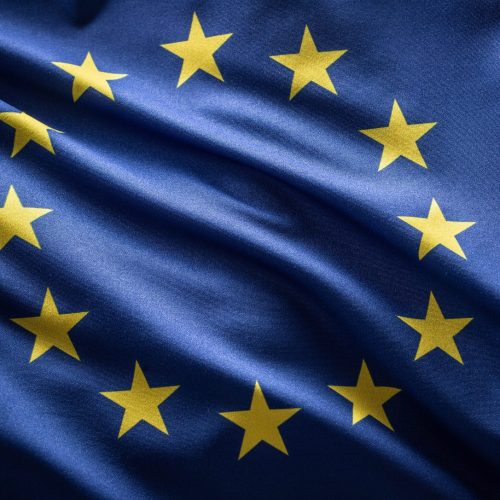EU fines Apple €500M and Meta €200M in first Digital Markets Act penalties.
Credit: Getty Images | SimpleImages
The European Commission issued a €500 million fine to Apple and a €200 million fine to Meta yesterday, saying that both companies violated the Digital Markets Act (DMA). The companies are required to bring their platforms into compliance within 60 days or face “periodic penalty payments,” the EC said.
These are the first two non-compliance decisions adopted by the commission under the DMA. The EC said it determined that Apple breached its anti-steering obligation and that “Meta breached the DMA obligation to give consumers the choice of a service that uses less of their personal data.”
“Apple and Meta have fallen short of compliance with the DMA by implementing measures that reinforce the dependence of business users and consumers on their platforms,” said European Commissioner for Competition Teresa Ribera.
Both companies criticized the fines. Meta alleged that the EC is “unfairly restricting personalized advertising” and that “forcing us to change our business model effectively imposes a multi-billion-dollar tariff on Meta while requiring us to offer an inferior service.”
“The European Commission is attempting to handicap successful American businesses while allowing Chinese and European companies to operate under different standards,” Meta Chief Global Affairs Officer Joel Kaplan said.
Apple said in a statement provided to Ars that it “will appeal and continue engaging with the Commission in service of our European customers.”
“Today’s announcements are yet another example of the European Commission unfairly targeting Apple in a series of decisions that are bad for the privacy and security of our users, bad for products, and force us to give away our technology for free,” Apple said. “We have spent hundreds of thousands of engineering hours and made dozens of changes to comply with this law, none of which our users have asked for. Despite countless meetings, the Commission continues to move the goal posts every step of the way.”
Apple App Store restrictions
The EC can fine companies up to 10 percent of their global annual turnover, which would amount to many billions for Apple and Meta. Reuters reported that the relatively modest fines are “due to the short period of the breaches, a focus on compliance rather than sanctions, and a desire to avoid possible retaliation from [President Donald] Trump.”
Ribera said the EC took “firm but balanced enforcement action against both companies, based on clear and predictable rules.”
The EC said Apple is required to let app developers “inform customers, free of charge, of alternative offers outside the App Store, steer them to those offers and allow them to make purchases.” But because of “a number of restrictions imposed by Apple, app developers cannot fully benefit from the advantages of alternative distribution channels outside the App Store,” the European regulator said. “Similarly, consumers cannot fully benefit from alternative and cheaper offers as Apple prevents app developers from directly informing consumers of such offers.”
Apple “failed to demonstrate that these restrictions are objectively necessary and proportionate,” the EC said. The regulator “ordered Apple to remove the technical and commercial restrictions on steering and to refrain from perpetuating the non-compliant conduct in the future.”
EC: Meta ad model falls short
The DMA requires Meta to “seek users’ consent for combining their personal data between services,” the EC said. “Those users who do not consent must have access to a less personalized but equivalent alternative.”
With Meta’s “Consent or Pay” advertising model introduced in November 2023, “EU users of Facebook and Instagram had a choice between consenting to personal data combination for personalized advertising or paying a monthly subscription for an ad-free service,” the EC said.
The EC found that this model violated the DMA because it didn’t give users “the required specific choice to opt for a service that uses less of their personal data but is otherwise equivalent to the ‘personalized ads’ service” and “did not allow users to exercise their right to freely consent to the combination of their personal data.”
Meta changed the model in November 2024 after discussions with the commission, the announcement said. “Meta introduced another version of the free personalized ads model, offering a new option that allegedly uses less personal data to display advertisements,” the EC said. “The Commission is currently assessing this new option and continues its dialogue with Meta, requesting the company to provide evidence of the impact that this new ads model has in practice.”
The €200 million fine is only for the period between March 2024, when the DMA obligations took effect, and November 2024. Meta could face another penalty if its new system is also found to be non-compliant.
The EC separately gave Meta some good news as it determined that Facebook Marketplace should no longer be designated as a gatekeeper under the DMA because it had fewer than 10,000 business users in 2024. Meta appealed the gatekeeper designation in March 2024.
Because of the service’s low usage, “Meta therefore no longer meets the relevant threshold giving rise to a presumption that Marketplace is an important gateway for business users to reach end users,” the EC said.
Jon is a Senior IT Reporter for Ars Technica. He covers the telecom industry, Federal Communications Commission rulemakings, broadband consumer affairs, court cases, and government regulation of the tech industry.




